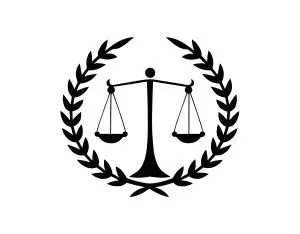
Call Now For A Free Consultation:

Call Now For A Free Consultation:

In Riverside County, as in the rest of California, citizens have legal rights when interacting with law enforcement. While police officers have significant authority to perform their duties, they are not immune from accountability when they violate citizens' constitutional rights. Many people wonder if you can sue a cop who has engaged in misconduct, and the answer is yes—legal remedies exist. At Justin Palmer Law Group, we regularly field questions about police misconduct and the options available to those who have experienced rights violations. This article explores the process, challenges, and considerations involved when pursuing legal action against law enforcement officers in Riverside County.
Contact us today for a confidential consultation about your case and take the first step toward seeking the compensation and justice you deserve.
Yes, you can sue a cop in Riverside County if your constitutional rights have been violated through actions like excessive force, false arrest, illegal searches, or discriminatory treatment. The process typically requires filing an administrative claim with the appropriate government entity within six months, followed by a formal lawsuit if the claim is denied. However, these cases face significant challenges including qualified immunity (which protects officers unless they violated "clearly established" rights), the need for substantial evidence, and strict filing deadlines—making it advisable to consult with a knowledgeable attorney who handles police misconduct cases as soon as possible after an incident.

Several scenarios might justify legal action against law enforcement in Riverside County:
One of the most common reasons you can sue a cop is for using excessive force during an arrest or detention. While officers are permitted to use reasonable force when necessary, they cross a legal line when that force becomes excessive relative to the situation. Examples include:
If you were detained without probable cause or a valid warrant, you might have grounds for a false arrest claim. Police must have legitimate reasons—beyond mere suspicion—to arrest someone.
The Fourth Amendment protects against unreasonable searches. If Riverside County officers searched your person, vehicle, or home without a warrant, consent, or a qualifying exception to the warrant requirement, you may have grounds to sue a cop.
If law enforcement pursued charges against you despite knowing there wasn't sufficient evidence, or if they fabricated evidence, this could constitute malicious prosecution.
Police cannot legally interfere with your right to peaceful protest, freedom of speech, or recording police activities in public spaces (as long as you're not interfering with their duties).
When considering whether you can sue a cop in Riverside County, it's important to understand the legal avenues available:
One of the primary mechanisms for suing law enforcement is through a federal civil rights lawsuit under 42 U.S.C. § 1983. This federal statute allows individuals to sue government officials, including police officers, who violate constitutional rights while acting "under color of law."
To succeed in a Section 1983 claim, you must establish that:
In addition to federal claims, California state law provides avenues for legal action, including:
The Bane Act (California Civil Code § 52.1) specifically addresses civil rights violations and provides another potential basis for claims against law enforcement. It prohibits interference with constitutional rights by threat, intimidation, or coercion.
California has enacted several measures aimed at increasing police accountability in recent years:
Senate Bill 1421
This legislation made certain police records accessible to the public, including those involving serious uses of force, sexual assault, and dishonesty.
Assembly Bill 392
This bill raised the standard for when officers can use deadly force, requiring it to be "necessary" rather than merely "reasonable."
Body Cameras
Many Riverside County law enforcement agencies now use body cameras, which can provide crucial evidence in misconduct cases.
At Justin Palmer Law Group, we understand the complexities involved when seeking justice against law enforcement misconduct in Riverside County. The process begins with hiring a qualified attorney and follows specific legal procedures that must be carefully navigated.
Can you sue a cop? Contact Justin Palmer Law Group promptly can help protect your legal options and ensure you meet critical deadlines for pursuing justice.
At Justin Palmer Law Group, we help victims of police misconduct in Riverside County recover various types of financial compensation when law enforcement officers have violated their rights.
If you've experienced police misconduct in Riverside County, contact Justin Palmer Law Group for a confidential consultation to discuss your case and the potential compensation you may be entitled to receive. Remember that each case is unique, and having a lawyer who understands how to sue a cop can significantly impact your ability to recover maximum compensation.
While you can sue a cop in Riverside County, these cases present unique challenges:
One significant hurdle is the doctrine of qualified immunity, which protects government officials from liability unless they violated "clearly established" legal rights that a reasonable person would have known about. This high standard often shields officers from civil liability.
Successful claims typically require substantial evidence. This might include:
Without strong evidence, cases against law enforcement can be difficult to win.
In California, the statute of limitations for filing a claim against a government entity, including police departments, is typically short. For most claims, you must file an administrative claim within six months of the incident before proceeding to court.
If you believe your rights were violated by law enforcement, consulting with a California police brutality attorney who handles police misconduct cases is crucial. An experienced Riverside County police brutality lawyer can:
Time is of the essence in these cases due to strict filing deadlines, so it's advisable to seek legal counsel promptly after an incident.
At Justin Palmer Law Group, we provide dedicated legal representation for individuals who have suffered from police misconduct in Riverside County and need guidance on how to sue a cop who violated their rights.
If you've experienced mistreatment by law enforcement in Riverside County, consulting with Justin Palmer Law Group can significantly improve your chances of holding officers accountable and receiving the compensation you deserve for the violations of your rights.
If you've experienced rights violations by law enforcement in Riverside County, don't face this challenging situation alone. At Justin Palmer Law Group, we have the knowledge, resources, and determination to help you hold officers accountable for misconduct.
Contact us today for a confidential consultation about your case and take the first step toward seeking the compensation and justice you deserve.
Attorney Advertising | Prior results do not guarantee a similar outcome. The information on this website is for general information purposes only. Nothing on this site should be taken as legal advice for any individual case or situation. This information is not intended to create, and receipt or viewing does not constitute, an attorney-client relationship. This site is protected by reCAPTCHA and the Google Privacy Policy and Terms of Service apply.